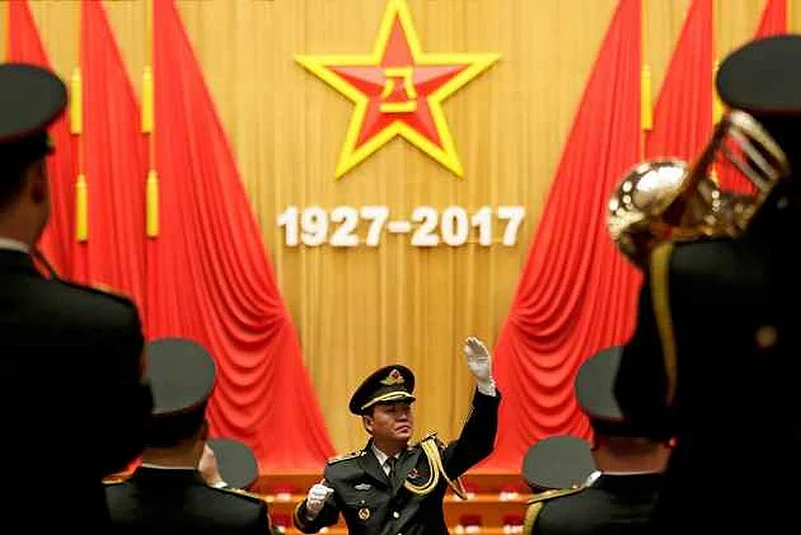It seems the 73-day standoff at Doklam between India and China may have ended with the going of one person.
Brahma Chellaney has tried to join the dots together for The Hindustan Times and says that former PLA chief General Fang Fenghui’s ouster may have led to the standoff ending. That would also seem to hint that President Xi is still struggling to hold sway over a military force that marched under a different tune under his predecessors.
“The Doklam pullbacks suggest that the removed chief, General Fang Fenghui, was an obstacle to clinching a deal with India and probably was responsible for precipitating the standoff in the first place. Fang was fired just days after he hosted America’s highest-ranking military officer, General Joseph Dunford,” writes Chellaney.
Advertisement
The author justifies his argument by citing an incident from 2014 when Xi’s visit to India coincided with the PLA marching into Ladakh. He says that it was a sign that Xi was not in total command of the forces.
Incidental as it may have seemed at the time, General Fenghui was replaced as the PLA chief within hours of the Doklam standoff ending.
The Chinese Defence Ministry did not directly announce General Li Zuocheng’s appointment, but simply identified him with his new designation during a meeting with Pakistan Army chief General Qamar Javed Bajwa in Dushanbe, the capital of Tajikistan last Saturday.
Advertisement
The ministry also didn't reveal which position Fang is transferred to.
Li has been seen as one of President Xi Jinping’s rising stars since 2013, when he was named chief of the former Chengdu Military Region, which also looks after the border region with India. He was promoted to full general in 2015.
China’s forces though function under the command of the communist party of China. Writing for Outlook, Manoj Joshi had elaborated on Xi’s attempts to gain more of a control over his military.
“Apart from professional ability and loyalty, Xi has stressed the need for the PLA to change its culture and adopt a style of “frugality and austerity”. In December 2012, the “Ten Regulations on Improving the Work Style of the PLA” formally banned liquor in PLA functions, forbade big banquets, and called on the PLA brass to adopt a simple style in their tours.
In April 2013, new instructions were issued, ordering the PLA and People’s Armed Police (PAP) top officers to spend two weeks on the frontline as enlisted soldiers. Regiment and brigade commanders were to do this once in three years, division and corps commanders once in four years and leaders from HQ and military regions/districts once in five years.
Xi established his authority over the PLA ruthlessly. He first bludgeoned its leadership through an anti-corruption campaign. Two of its highest, former vice-chairmen of CMC, General Guo Boxiong, and General Xu Caihou, both of whom were CPC politburo members till 2012, were jailed, along with a host of other officers.”
Advertisement
As Chellaney would argue though, Xi has not had not total control over his forces as yet.
With Agency Inputs



















